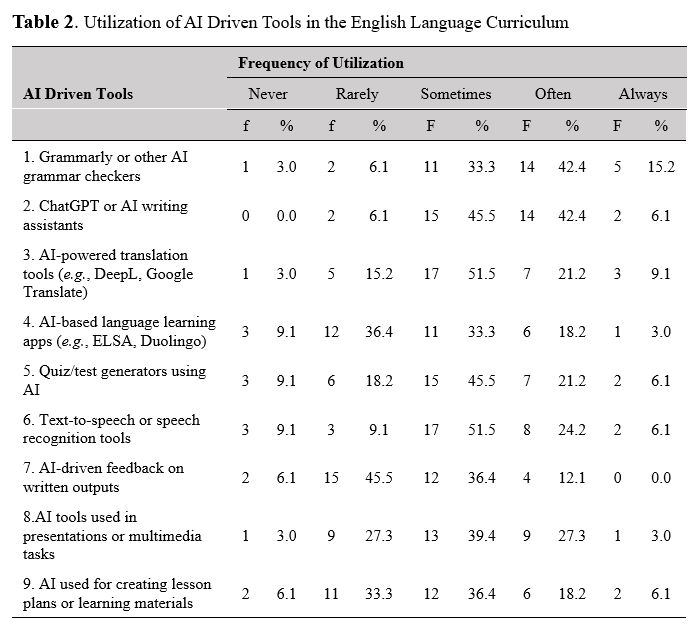Empowering Language Skills through AI in Teacher Education
DOI:
https://doi.org/10.69478/BEST2025v1n1a002Keywords:
AI pedagogy, Smart pedagogy, Language proficiency, Pre-service teachersAbstract
This study explores how AI-powered tools contribute to enhancing English language proficiency among future educators in the Philippines. With artificial intelligence becoming increasingly integrated into classrooms, the research focused on four key areas: assessing students’ perceived English proficiency, identifying commonly used AI tools, examining challenges in their implementation, and proposing strategies to improve their integration. Using a mixed-methods approach, data were collected through surveys, interviews, and focus group discussions. Participants were purposively selected fourth-year English major students from a Teacher Education program at a state university, chosen for their exposure to both advanced English content and educational technologies. Quantitative data were analyzed using mean, standard deviation (SD), and ranking to assess proficiency levels and tool usage frequency. Qualitative data were examined using Braun and Clarke’s (2021) thematic analysis, which involved identifying and interpreting recurring themes from the participants’ responses. Findings revealed that tools like Grammarly and ChatGPT were the most frequently used, particularly for writing tasks. However, more advanced tools such as AI-generated feedback systems and lesson planning assistants remained underutilized due to issues like limited access, reliability concerns, and lack of user confidence. Ethical concerns, such as plagiarism, and inadequate training were also significant challenges. Most participants reported using AI tools only “sometimes,” reflecting a cautious and exploratory use within the curriculum. The study highlights a growing openness to AI in education but emphasizes the need for clear guidelines, ethical safeguards, and structured training to ensure re-sponsible, effective, and sustainable use of smart pedagogy in English language instruction.
References
V. Braun, V. Clarke, “Thematic Analysis,” in APA Handbook of Research Methods in Psychology, Vol. 2. Research Designs: Quantitative, Qualitative, Neuropsychological, and Biological, H. Cooper, P. M. Camic, D. L. Long, A. T. Panter, D. Rindskopf, K. J. Sher (Eds.), American Psychological Association, 2012, pp. 57-71, https://doi.org/10.1037/13620-004.
V. Braun, V. Clarke, “Thematic Analysis: A Practical Guide,” SAGE Publications Ltd., California: USA, October 2021, ISBN: 9781526417305.
N. Selwyn, “Education and Technology: Key Issues and Debates,” 2nd ed., Bloomsbury Publishing, Dublin: Ireland, November 2021, ISBN: 9781350145566.

Downloads
Published
Issue
Section
Categories
License
Copyright (c) 2025 Jureca F. Nacional, Ma. Maja Jade N. Perez (Author)

This work is licensed under a Creative Commons Attribution-NonCommercial 4.0 International License.



